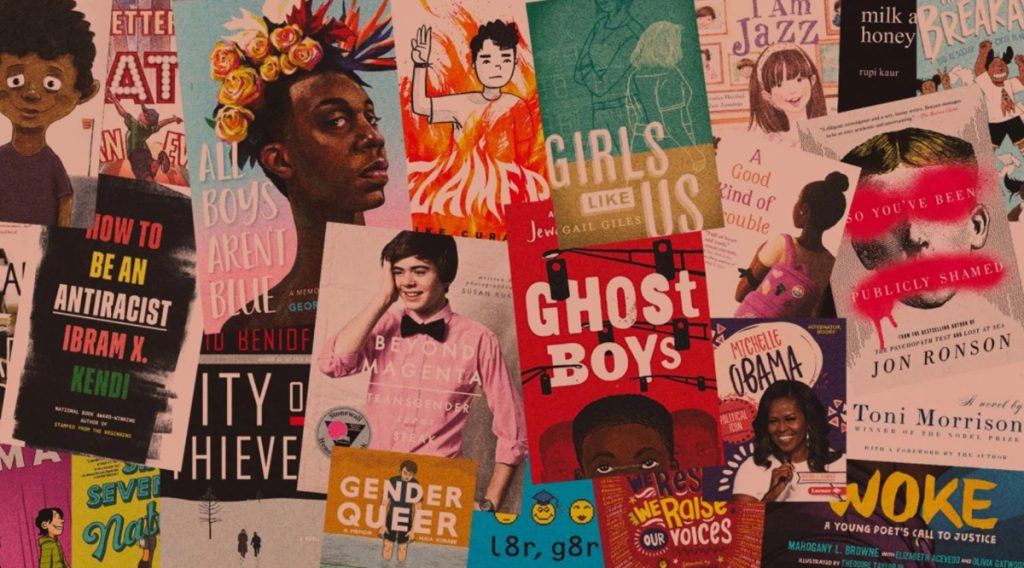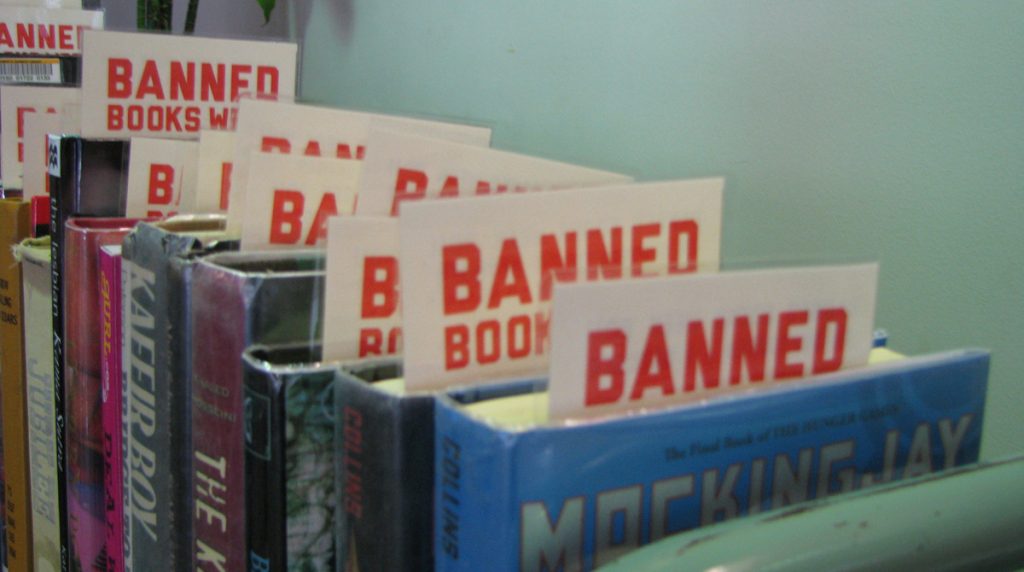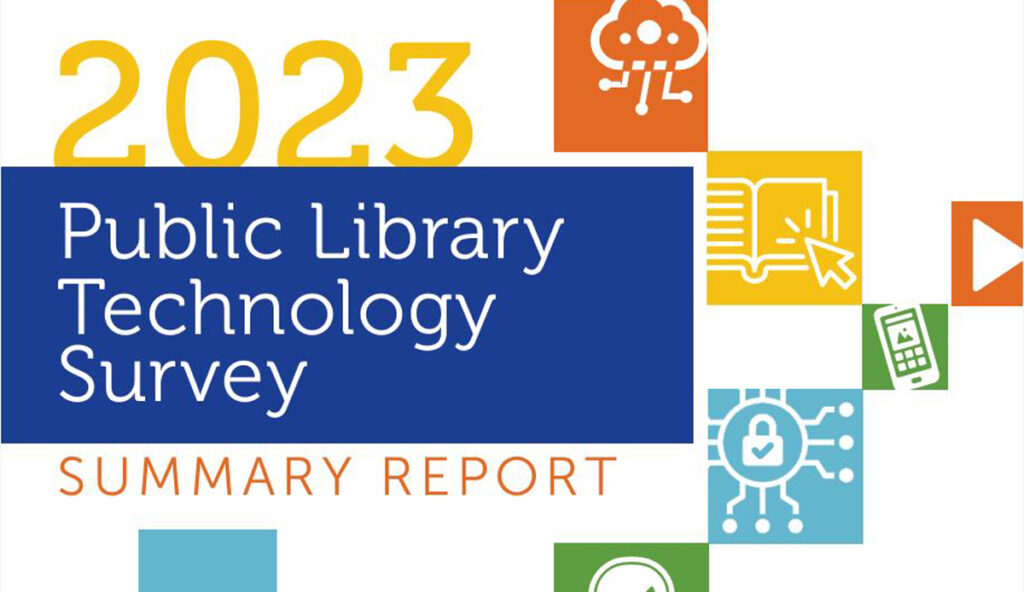Book challenges and book banning are increasing in libraries and schools throughout the United States. To help spread the word about these activities and efforts to combat them by librarians, parents, students, politicians, and concerned citizens, I Love Libraries will highlight several stories each week on the current crisis. This roundup includes news from New York, Ohio, Tennessee, and Texas. Please share widely.
50 books parents tried to ban in Texas
NBC News sent public records requests to nearly 100 school districts in the Houston, Dallas, San Antonio and Austin regions — a small sampling of the state’s 1,250 public school systems — and found 86 formal requests to remove books from libraries last year, the vast majority coming during the final four months of the year. Several titles were targeted in multiple districts.
Drawing from those records, they compiled a list of 50 books that Texas parents tried to ban in 2021.
New York takes a stand
New York City libraries are fighting back against recent book bans by giving readers across the U.S. access to their ebooks for a limited time, reports Time Out New York.
New York Public Library is opening access to a selection of commonly banned books (including Speak by Laurie Halse Anderson, King and the Dragonflies by Kacen Callender, Stamped: Racism, Antiracism, and You by Jason Reynolds and Ibram X. Kendi, and The Catcher in the Rye by J.D. Salinger) via its free e-reading app, SimplyE, now through May. And Brooklyn Public Library (BPL) is offering young adults, ages 13 to 21 nationwide, the chance to apply for a free e-card from BPL to get access to the library’s ebooks.
Book challenges occurring at “unparalleled” rate
More than 1,000 books, most addressing racism and LGBTQ issues, have been banned from U.S. classrooms and school libraries in the last nine months, many under pressure from conservative parents and officials, the writers’ organization PEN America said on April 7. PEN compiled a database of banned books that includes The Bluest Eye, the first novel by Nobel Prize winner Toni Morrison, and They Called Us Enemy, a graphic novel memoir by actor and activist George Takei about living in an internment camp in California as a child during World War Two.
“Challenges to books, specifically books by non white male authors are happening at the highest rates we’ve ever seen,” Jonathan Friedman, director of PEN America’s Free Expression Program and lead author of the report, said in a news release. “What is happening in this country in terms of banning books in schools is unparalleled in its frequency, intensity, and success,” he said.
Uproar over books in northern Ohio
“Hudson parents are still trying to ban books from the high school library. This is akin to banning the steam engine or the rotary phone. Sorry parents, the horse left this barn a long time ago,” write the Akron (Ohio) Beacon Journal on efforts in Hudson, Ohio, to remove books from the school library.
“If you have not taught your high school kids right and wrong and how to think for themselves, they are headed for a rough road in this complex modern world.”
Country singer compares teachers to pedophiles in speech backing book ban
A legislative push in Tennessee to ban “obscene” books from schools resulted in a surreal hearing on February 23, with country music star John Rich arguing that librarians and teachers pose a greater threat to children than pedophiles, reports Huffington Post. Rich is one half of the duo Big & Rich, whose 2004 hit “Save a Horse (Ride a Cowboy)” encourages listeners to “give a dang about nothing” and drink heavily, while celebrating women who “save” horses by instead riding cowboys.
Tennessee House passes bill banning ‘obscene materials’ from schools
On March 28, the Tennessee House passed legislation that prohibits allowing “obscene materials or materials harmful to minors” to be available to students in the school libraries controlled by a local education agency or public school, reports WKRN. If someone disobeys the school board’s directive to remove a book, they could face a class A misdemeanor, or a class E felony if someone repeatedly doesn’t comply. Failure to comply with the policy could also result in the state withholding education funds.
Take action
Alarmed by the escalating attempts to censor books? Here are four steps you can take now to protect the freedom to read.
1. Follow news and social media in your community and state to keep apprised of organizations working to censor library or school materials.
2. Show up for library colleagues at school or library board meetings and speak as a library advocate and community stakeholder who supports a parent’s right to restrict reading materials for their own child but not for all readers.
3. Help provide a safety net for library professionals as they work to navigate the intellectual freedom needs of their communities by giving to the LeRoy C. Merritt Humanitarian Fund.
4. Educate friends, neighbors, and family members about censorship and how it harms communities. Share information from Banned Books Week 2021.
5. Join the Unite Against Book Bans movement to learn what you can do to defend the freedom to read in your community.



